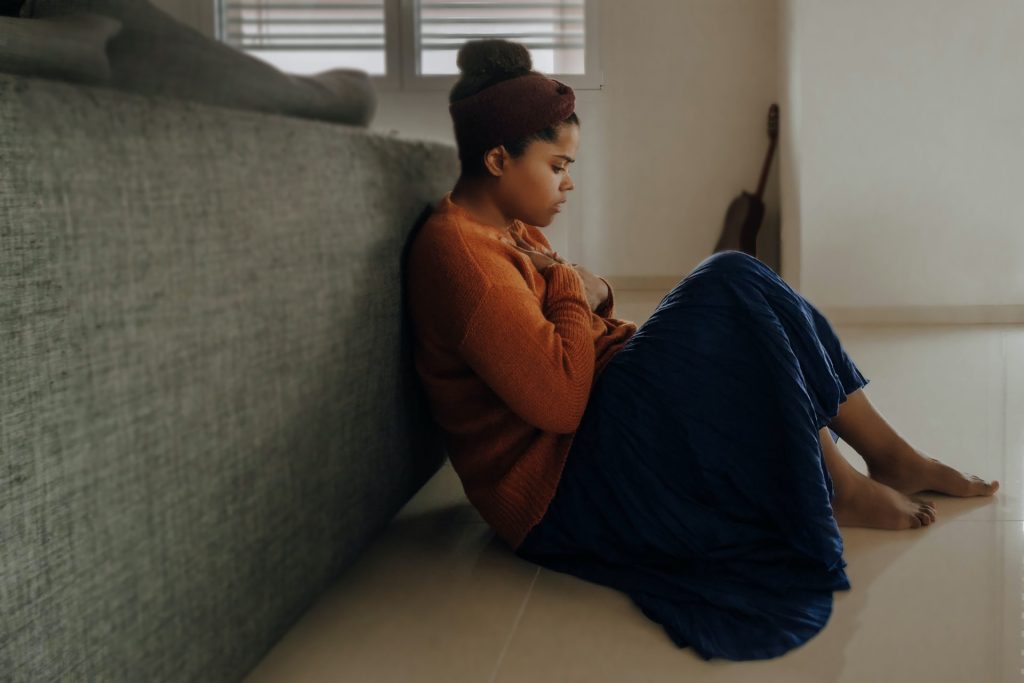
Although it’s challenging to live with anxiety, anxiety disorders are very treatable. That said, not everyone who would meet the criteria for an anxiety disorder has a diagnosis. Even those who are diagnosed do not always get the treatment they need. In fact, statistics published by the Anxiety and Depression Association of American or ADAA indicate that only 36.9% of those living with an anxiety disorder get treatment. This means that, although treatment can improve a person’s quality of life tremendously, not everyone who would benefit from treatment gets the care they need.
So, how do you know if you have an anxiety disorder? Perhaps more importantly, do you need a diagnosis to start getting help?
Table of Contents
Anxiety Disorders: Commonality And Symptoms

Source: unsplash.com
According to the National Alliance on Mental Illness (NAMI), 19% of adults aged 18 or older in the US have an anxiety disorder, and 7% of minors aged 3-17 experience anxiety. There are various types of anxiety or anxiety disorders. Though different diagnoses may share similarities, every condition has a distinct set of criteria and symptoms. Common anxiety disorder diagnoses seen in adults include:
- Agoraphobia. This is a disorder where a person fears spaces or situations that are unfamiliar, open, or that may be difficult to exit, which often results in difficulty leaving the home, whether at all or in many scenarios. For example, a person may fear crowds, workspaces, grocery stores, or standing in line.
- Generalized Anxiety Disorder (GAD). This is a disorder where a person experiences disproportionate, excessive worry surrounding various different topics and situations. GAD is currently the most commonly diagnosed anxiety disorder.
- Specific Phobia. This is a disorder where a person experiences a specific phobia (such as a phobia of heights, storms, or crowded spaces) that impacts their life, their functioning, or causes clinically significant distress.
- Social Anxiety Disorder (Social Phobia). This is a disorder where a person experiences anxiety surrounding social situations to an extent that it impacts their life, their functioning, or causes significant distress.
- Panic Disorder. This is a disorder where a person experiences recurring panic attacks and a fear of future attacks.
Other diagnoses, such as Other Specified Anxiety Disorder, may be used in certain contexts. All anxiety disorders can be debilitating, especially if left untreated. Symptoms of any given anxiety disorder may differ from person to person, so even if you meet several people with the same diagnosis, they may experience the disorder or symptoms of it differently. For example, one person might experience symptoms like blushing, shaking, or trembling, where another might not. Symptoms may also change over time, and it is possible to live with more than one anxiety disorder.
There are various risk factors that may increase the plausibility that a person will have or develop an anxiety disorder, but anyone can live with one. If you have an anxiety disorder or think that you might, getting the correct care can be a serious game-changer. Talk therapy, whether by itself or combined with medication*, is a frequently used and effective form of treatment for anxiety disorders.
*Please consult with your medical doctor before starting, stopping, or changing medications.
Do You Need To Be Diagnosed With Anxiety To See A Therapist?

Source: pexels.com
You don’t need to be diagnosed with anxiety to see a therapist.
A diagnosis can be helpful for a number of reasons, such as insurance coverage, documentation for future medical visits, and personal clarity, but you do not need a diagnosis of any kind to start seeing a therapist. Even if you understand that your symptoms may be attributed to an anxiety disorder, it is completely reasonable and appropriate to make an appointment with a therapist and talk about what you’re going through without a diagnosis or prior to a diagnosis. During your intake session, they’ll ask you questions about why you’re there, and you can tell them about what’s been going on as far as possible anxiety symptoms go. In some cases, this will be the first step toward obtaining a diagnosis, especially if you let them know that that’s something you want to explore or look into.
People see mental health therapists and counselors for many different reasons, including but not limited to stress, friendships, work-related issues, romantic relationships, and family life. It is not just mental health conditions that are addressed in therapy, and you don’t need one to benefit from seeing a therapist or counselor. Sometimes, life stress can cause symptoms that are adjacent to certain diagnoses, and that in and of itself is a reason to seek care. It’s important to remember that there is no shame in seeking help with or without a diagnosis.
How Do You Get An Anxiety Diagnosis?

Source: unsplash.com
There are a couple of different ways to pursue a potential diagnosis. Many people start by contacting their primary care physician (PCP), a general doctor, or a psychiatrist for an appointment. During the appointment, your provider will ask you questions about your symptoms and then ask follow-up questions such as, “how much do these symptoms impact your life?” or “when did your symptoms begin?” If you have a therapist or counselor, they will be able to help you take the steps toward getting a diagnosis, which may mean that they refer you to someone who can provide a formal diagnosis. Diagnosing anxiety disorders is typically a straightforward and non-invasive process.
How To Find A Therapist Who Works With Anxiety

Source: pexels.com
Whether you have a formal diagnosis of anxiety or not, you may be interested in working with a provider who understands anxiety. There are a number of ways to find a therapist or counselor who works with anxiety and other similar concerns. You can talk with your doctor and ask for a referral to a therapist, search the web for therapists who work with anxiety in your area, or look into what your health insurance covers by calling them on the phone or, if applicable, by visiting their website. You may also consider online therapy options, which allow you to work with a licensed provider from anywhere with a steady internet connection, including the privacy of your own home. Regardless of how you take the initial step toward finding care, don’t hesitate to start the process now. Read more on anxiety. You deserve to get the support you need for anxiety and anything else that’s on your mind.







